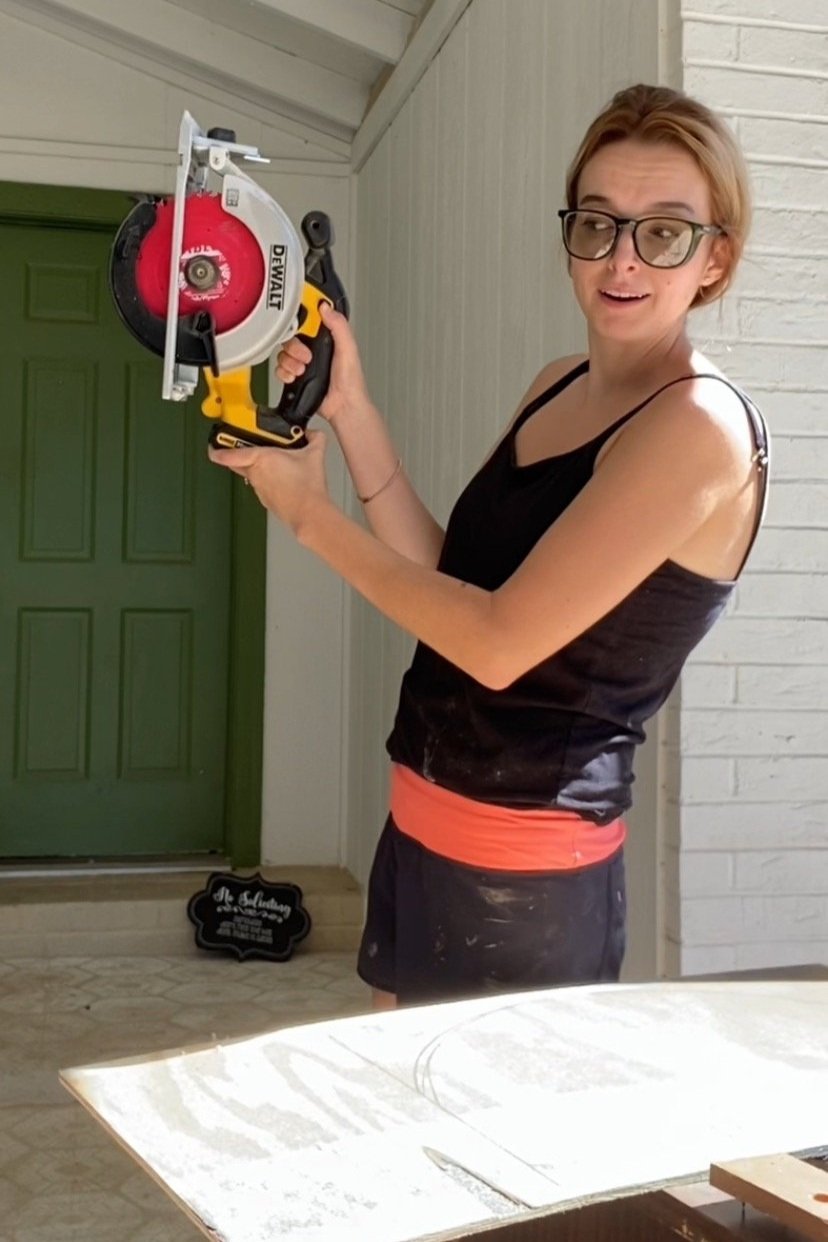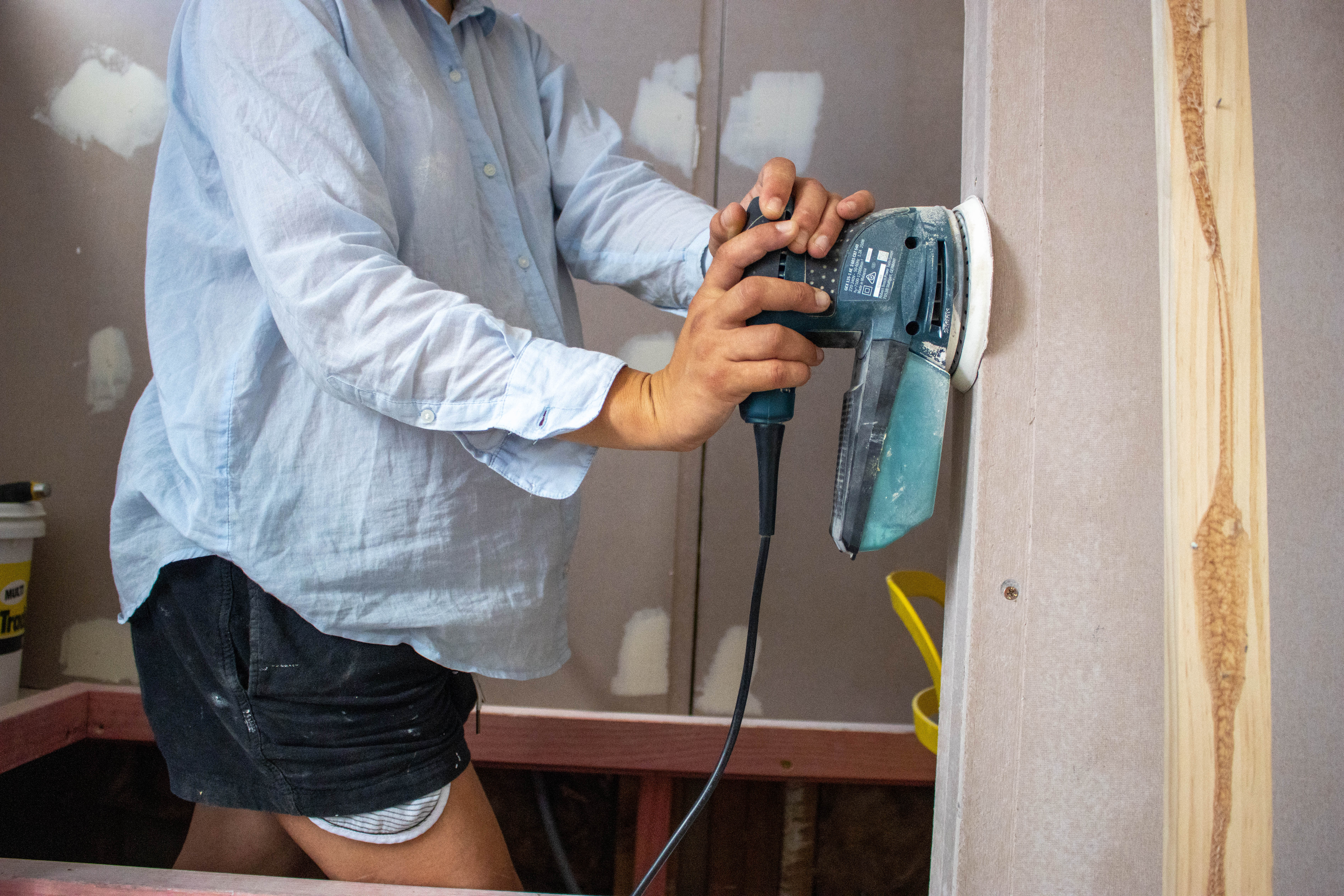Is it safe to use power tools while pregnant? That’s a question many expectant mothers might ask. Well, let’s dig in and find out! Being pregnant is an exciting and joyful time, but it also comes with certain precautions. In this article, we’ll explore whether it’s advisable to use power tools during pregnancy. So, if you’re expecting and wondering about the safety of power tools, keep reading!
When you’re pregnant, the health and well-being of both you and your baby are of the utmost importance. It’s natural to want to continue with your daily activities, but certain considerations need to be taken into account. We’ll reveal what medical professionals say about using power tools while pregnant. Safety is key, so let’s find out what precautions you should take!
As an expectant mother, it’s essential to be aware of potential risks and make informed decisions. Together, we’ll navigate the topic of using power tools during pregnancy, ensuring you have all the information you need to prioritize your safety and the health of your baby.
While it’s generally recommended to avoid using power tools when pregnant, there are safety measures you can take if it’s absolutely necessary. First, consult with your healthcare provider to assess any potential risks. If you still decide to use power tools, wear protective gear, work in a well-ventilated area, and take frequent breaks. Remember to prioritize safety and listen to your body’s signals. Always consult with a professional for guidance.

Can You Use Power Tools When Pregnant?
Introduction: Pregnancy is a time of joy and excitement, but it also comes with certain limitations and precautions. One question that often arises is whether it is safe to use power tools during pregnancy. In this article, we will explore the potential risks associated with using power tools while pregnant, as well as guidelines to ensure the safety of both the mother and the baby.
Risks Associated with Using Power Tools During Pregnancy
Using power tools during pregnancy can pose certain risks to both the mother and the developing baby. The vibrations produced by power tools, such as drills or jackhammers, can lead to increased discomfort and strain on the pregnant woman’s body, especially the hands and arms. This can exacerbate symptoms of conditions like carpal tunnel syndrome or tendonitis, which are more common during pregnancy.
Additionally, there is a risk of exposure to harmful substances. Some power tools, such as paint sprayers or sanders, may generate airborne particles that can be inhaled by the pregnant woman. These particles may contain chemicals or toxins that can be harmful to the developing baby. Certain solvents or adhesives used in power tool applications may also emit fumes or vapors that can be hazardous if inhaled.
In addition to these risks, accidents or mishandling of power tools can occur, leading to physical harm to the pregnant woman or risking injury to the unborn baby. Therefore, it is essential to take appropriate precautions and assess the risks before using power tools during pregnancy.
Risk Assessment and Safety Measures
1. Consult with Your Healthcare Provider: It is crucial to discuss your specific situation with your healthcare provider. They will consider factors such as your overall health, the stage of pregnancy, and the specific power tools you intend to use. They can provide personalized guidance and recommendations based on your individual circumstances.
2. Minimize Vibration Exposure: If you need to use power tools during pregnancy, opt for tools that have built-in vibration reduction mechanisms. Use low-vibration or anti-vibration gloves and take frequent breaks to allow your body to rest. Consider using alternative methods or tools that generate lower levels of vibration whenever possible.
3. Ensure Proper Ventilation: If you are using power tools that generate airborne particles or emit fumes, make sure you are in a well-ventilated area. Open windows or use fans to improve air circulation. Wear a respirator or a mask specifically designed to filter out harmful particles or vapors.
4. Practice Safe Handling: Take extra caution when handling power tools during pregnancy. Follow all safety guidelines and instructions provided by the tool manufacturer. Ensure proper training and use protective equipment, such as safety goggles, gloves, or earmuffs, to protect yourself from potential hazards.
5. Delegate Tasks or Seek Professional Help: If possible, delegate power tool tasks to someone else during pregnancy. This will help minimize the risks and allow you to focus on the well-being of yourself and your baby. Alternatively, consider hiring professionals for tasks that involve extensive or prolonged use of power tools.
Benefits of Avoiding Power Tools During Pregnancy
Avoiding the use of power tools during pregnancy not only minimizes potential risks but also offers various benefits. Firstly, it reduces physical strain and discomfort on the pregnant woman’s body, allowing her to focus on self-care and a healthy pregnancy. Secondly, it eliminates the risk of exposure to harmful substances, protecting both the mother and the developing baby from potential health hazards. Lastly, avoiding power tools during pregnancy promotes peace of mind, knowing that you are taking necessary precautions to prioritize the well-being of yourself and your baby.
Alternatives to Power Tools
If you need to undertake projects that would typically require power tools, but you want to avoid their use during pregnancy, there are alternative options available. Consider using manual tools that do not rely on electricity or vibrations, such as hand saws, hand drills, or screwdrivers. These can still be effective for many DIY tasks and carry fewer risks in terms of vibrations and exposure to harmful substances.
Myths Debunked: Is It Safe to Use Power Tools When Pregnant?
Despite common misconceptions, using power tools during pregnancy is generally not recommended due to the potential risks involved. The vibrations, exposure to harmful substances, and the increased risk of accidents or mishandling can pose significant dangers to the health and well-being of both the pregnant woman and the unborn baby. It is essential to prioritize safety and consult with a healthcare provider for personalized advice and guidance.
Key Takeaways: Can You Use Power Tools When Pregnant?
- It’s generally not recommended to use power tools while pregnant.
- Exposure to loud noises, fumes, and vibrations can be harmful to both you and your baby.
- Pregnancy hormones can affect balance and coordination, increasing the risk of accidents.
- Consider alternative options, such as asking for help or hiring professionals for any necessary tasks.
- Always consult with your healthcare provider before engaging in any potentially risky activities during pregnancy.
Frequently Asked Questions
Here are answers to some common questions regarding the use of power tools during pregnancy:
1. Can pregnant women safely use power tools?
While it is generally recommended to limit exposure to certain chemicals and physical stressors during pregnancy, the safe use of power tools depends on various factors. It’s important to assess the specific tool, the type of work being performed, and the individual’s overall health. Consulting with a healthcare professional is advised to evaluate any potential risks.
If power tool use cannot be avoided, taking safety precautions such as wearing protective gear, working in well-ventilated areas, and taking frequent breaks can help reduce potential risks. It is crucial to prioritize personal safety and listen to one’s body for any signs of discomfort or fatigue.
2. Are there specific power tools that should be avoided during pregnancy?
While every pregnancy is different, certain power tools may pose a higher risk to pregnant individuals. Tools that generate excessive heat, produce strong vibrations, or release harmful fumes should be approached with caution. This includes tools such as welding equipment, heavy-duty jackhammers, and paint sprayers.
It’s important to read the user manuals, warning labels, and safety guidelines provided by the manufacturer for each specific tool. If unsure about the safety of a particular power tool, reaching out to a healthcare professional is recommended.
3. What should pregnant women consider when using power tools?
Pregnant women using power tools should prioritize minimizing exposure to harmful substances and reducing physical strain. This includes avoiding direct contact with potentially hazardous materials, such as chemicals or lead-based paints, and ensuring proper ventilation in the workspace.
Taking frequent breaks, staying hydrated, and listening to one’s body are crucial aspects to consider. If feeling fatigued, experiencing discomfort, or noticing any adverse effects, it is important to stop using the power tools immediately and seek medical attention.
4. Are there alternative tasks pregnant women can perform instead of using power tools?
Absolutely! If power tool use is not recommended during pregnancy, there are various alternative tasks that can be performed. Non-hazardous activities such as organizing tools, cleaning work areas, planning projects, or researching new techniques can still contribute to project preparations without potentially endangering the health of the pregnant individual.
Furthermore, pregnant individuals can take this time to learn new skills, attend workshops or classes, or expand their knowledge in areas that are connected to their line of work or hobbies.
5. What other safety measures should pregnant women follow in the workshop?
In addition to being cautious with power tool use, pregnant women should adhere to general safety guidelines in the workshop. This includes maintaining a tidy and well-organized workspace, wearing appropriate protective gear (such as gloves and goggles), and using tools with safety features and guards in place.
It’s also crucial to have access to communication devices in case of emergencies and to inform someone about the time spent in the workshop. If working alone, arranging for regular check-ins with a trusted individual is highly recommended.

ADHD & Pregnancy | ADHD Power Tools w/ Ali Idriss & Brooke Schnittman
Summary
You might be wondering if it’s safe to use power tools while pregnant. It’s important to stay safe, so here’s what you need to know. Firstly, it’s best to avoid using power tools during pregnancy if possible. The loud noises and vibrations can be harmful to you and your baby. But if you must use them, take some precautions. Make sure you wear protective gear like gloves and safety glasses. Take regular breaks and stay hydrated. And most importantly, listen to your body. If something doesn’t feel right, stop and ask for help.
Remember, your health and the health of your baby come first. It’s always better to be safe than sorry. If you have any concerns, talk to your doctor. They can provide guidance and help you make the best decision for you and your baby.
